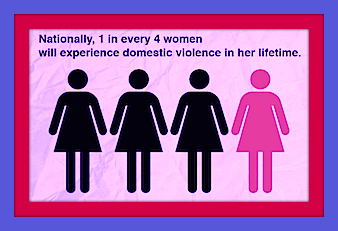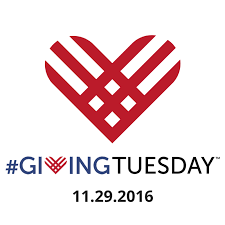
Archive for community
It’s a movement, a global initiative and a day for giving back. You can give hope to survivors of domestic violence. Your donation can help make the holidays, and every day, a little brighter for the children and families in our shelter. So please, if you are looking for an opportunity to give back — look no further.
Click the DONATE button give!
October is Domestic Violence Awareness Month.
To raise awareness about the growing issue of domestic violence and the need for increased support, Haven Hills is hosting an Art & Cocktail Reception featuring the uplifting and empowering work of some of LA’s finest artists. To purchase your tickets: https://artandcocktailevent.eventbrite.com
Haven Hills is one of only two domestic violence shelters in the San Fernando Valley. We provide emergency and transitional shelters, counseling and a crisis line, and the opportunity to live a life free from violence.
If you can’t join us, please consider donating — your support saves lives.
June 22, 2015
Earlier this month Haven Hills entered into a partnership with the Los Angeles LGBT Center. Haven Hills will be included in the Center’s directory of referral shelters and hotlines, and identified as an LGBT-Sensitive Shelter. Studies show that domestic violence is prevalent in the LGBTQ community as it is among heterosexual couples.
Through this partnership Haven Hills will expand its counseling, support groups, advocacy services, and most notably the Crisis Shelter and Transitional Housing Program to heterosexual men and LGBTQ-identified women and men. Similarly, Haven Hills will refer LGBTQ-identified clients to the Center should they choose to meet with LGBT-domestic violence specialists. Haven Hill’s staff will also participate in LGBTQ-sensitive training to ensure clients are served respectfully.
This partnership marks a great leap forward in addressing the needs of all victims of domestic violence, regardless of gender or sexual orientation.
For more information about the Los Angeles LGBT Center and its domestic violence services, click here.
Beginning Ma y 1st Haven Hills will accept pets into our Haven Two Transitional Housing Program. Our intention is to shelter animals that victims have already created a bond with and avoid the loss that is associated with losing a pet in addition to all the trauma a victim is experiencing. Family pets will be considered on a case by case basis, considering the client’s ability to care for the pet, the animal’s history of behavior, the ability to safely and comfortably shelter the animal at our shelter, and the risk to any damage to our facility.
y 1st Haven Hills will accept pets into our Haven Two Transitional Housing Program. Our intention is to shelter animals that victims have already created a bond with and avoid the loss that is associated with losing a pet in addition to all the trauma a victim is experiencing. Family pets will be considered on a case by case basis, considering the client’s ability to care for the pet, the animal’s history of behavior, the ability to safely and comfortably shelter the animal at our shelter, and the risk to any damage to our facility.
Haven Hills has partnered with Pet Vet Animal Hospital in Canoga Park. Dr. Brown has graciously offered his veterinary services pro bono to our clients’ pets while they reside at our transitional housing complex. And Canoga Park Pet Resort has offered to provide pet daycare for our client’s pets if they are out for extended periods of time for job interviews or appointments. Thank you Dr. Brown and Canoga Pet Resort!
Upcoming Events
There are no upcoming events.

Haven Hills offers services to people of all backgrounds, ages, ethnicities, and to the LGBTQ community. We treat abusers seeking to move past the cycle of domestic violence. Call our 24/7 Crisis Line at 818.887.6589 if you, or someone you know, is the victim of domestic violence.
-

- Signs of Abuse
-

- How to Be Safer
-

- Safety As You Leave
-

- Items You Need
-

- Community News
-

- 3 Women Killed 24/7
What You Need to Know Now
Click Each Topic Below to Learn the Facts Fast
If you’ve experienced or witnessed any of these signs we advise that you seek guidance immediately. Understanding the impact of these instances is crucial in protecting yourself, your children, or potential loved one.
Emotional Abuse
Ridiculed or insulted your religion, race, heritage, class or women as a group
Withheld approval, appreciation or affection as punishment
Continually criticized you, called you names, shouted at you or demeaned you by telling you you are unable to manage without male help
Insulted or drove away your family and friends
Refused to socialize with you
Threatened to hurt your family, or threatened to kidnap the children
Controlled all the money, kept you from working or prevented you from making decisions
Manipulated you with lies/contradictions or controlled you with jealousy/possessiveness
Intercepted your mail or telephone calls, or took away car keys or money
Punished/deprived the children when he was angry at you, or abused pets to hurt you
Regularly threatened to leave or told you to leave
Blamed you for the violence
Physical Abuse
Pushed, shoved, slapped, bit, kicked, choked, punched or tripped you
Held you down to keep you from leaving or tied you down
Thrown objects at you
Locked you out of the house
Abandoned you in dangerous places
Refused you help when you were sick, injured or pregnant
Subjected you to reckless driving
Threatened or hurt you with a weapon
Twisted or pulled your arm
Banged your head against a wall
Sexual Abuse
Told anti-women jokes, made demeaning remarks about women, or treated women as sex objects
Became jealously angry, assuming you would have sex with any available man
Insisted you dress in a more sexual way than you wanted, or forced you to strip
Criticized you sexually
Insisted on unwanted and uncomfortable touching, or forced particular unwanted sex acts
Called you sexual names like “whore” or “frigid”
Publicly showed sexual interest in, or had affairs with other women
Forced sex with him or others, or forced you to watch others
Forced sex after beatings, or when you were sick, or it was a danger to your health
Forced sex for the purpose of hurting you with objects
Many victims of domestic violence choose not to leave, or cannot leave, an abusive relationship for an extended period of time. View the tips here to create a safer environment before your leave, and also click on Plan NOW to Be Safer After You Leave and Items You Need on the Haven Hills homepage. Domestic Violence is complicated by feelings of love and hope when the perpetrator apologizes and says the violence will never happen again. It is complicated by feelings of fear, intimidation, or threats. Every day battered women (and other victims of intimate partner abuse) make repeated attempts to leave violent relationships, but are prevented from doing so by increased violence and control tactics by the batterer. Consider these steps to be safer in the relationship; these steps cannot guarantee your safety, but they can help.
During the Relationship:
Always keep a phone where you know you can get to it. Know the numbers to call for help, such as 911, also 818.887.6589— the Haven Hills 24/7 CRISIS Line, and police, friends, and local shelter. Notice now where the nearest pay phones are in case you need to run out of the home without your cell phone.
If you sense a violent episode is about to happen, and it is safe to do so, disable or hide weapons.
The abuser may have a pattern to the abuse. Learn the pattern, be aware of all signs that the abuser is about to become violent so you can assess how dangerous the situation is for you and your children.
Make arrangements in advance to stay with someone you trust (that your partner does not know) in the event of an emergency.
Ask your neighbors now to immediately call 911 if they hear suspicious noises coming from your home
Which are the “safer places” inside your home? Figure our areas where there are no weapons. If it looks like the abuser is about to hurt you, try to get to one of these safer areas.
Open a savings account in your name only at a bank different from where your family’s other accounts are. Choose paperless/online statements so that on records of this account come to your home.
Never leave out any doodles or notes with shelter/bus/airline info
Follow the directions under Items You Need to make an Escape Kit and place it somewhere safe but accessible, NOT inside your home
If You Have Children:
Teach your children to call 911
Create a plan with your children for when violence happens. Instruct them not to get involved if the abuser is hurting you since that may get them hurt too.
Decide on a Code Word that you will say to let them know that they should leave the house and go get help. Also figure out with them in advance which is the safest place (such as a room with a lock and a phone) for them to go if the abuser will not let them leave the house. Tell them that their first priority is always to stay safe, not to physically protect you.
It is crucial that you have a plan to increase your safety and your children’s safety after you have left the abusive situation. Remaining safe after the relationship is as crucial as planning to leave.
- Tell family, friends, neighbors that you have left the relationship, and tell them NOT to provide the abuser with any info about you or your whereabouts
- Avoid all the stores, banks, restaurants, theaters, etc. that you used to go to when you were with your abusive partner
- Change your locks & secure your new residence
- Attend support groups and always call someone for support if you have thoughts of returning to an abusive relationship
- Consider getting a restraining order against your abuser. Keep a copy of your restraining order with you at all times, and keep another copy safe at your home and a third copy in your car. Give a copy to your local police, your employer and give them a photo of the abuser. If your abuser violates the restraining order, call the police
- Notify your children’s school, babysitter or daycare facility of exactly who has permission to pick up your children. Tell them about your restraining order. Tell them about your situation.
- Contact Haven Hills at 818.887.7489 or call our 24/7 CRISIS LINE 818.887.6589 or contact your local shelter/domestic violence program for info on precautions you can take against being traced or stalked
If you are planning to leave, it is important that you put together as many of the following items in your Escape Kit, and place this kit somewhere safe that is NOT in your home. You will need:
- Money: Your abuser will be able to trace where you are through a credit card and may close/empty bank accounts before you can get to them, or may be waiting at the bank. Include bank books, checkbooks, safety deposit key
- Your Medications and Prescriptions
- All your Keys
- Written record of your Important Telephone Numbers and Addresses, inc. local police department and hospital emergency room
- Extra Clothes for all types of weather
- Copies of your Important Paperwork: birth certificates, passports, green cards/alien registration/work permits, Visas, driver’s licenses/car registration, medical/clinic cards, Social Security cards, insurance papers (car, health, etc.) Also: Social Service docs inc welfare papers (GR, MediCal, SSI, Food Stamps, CalWORKS, GAIN, AFDC, etc). Pack your legal docs: marriage license divorce decrees, police complaints, restraining order, lease/rental agreement or house deed/mortgage payment book plus photos that may have safety/legal uses
- Children’s Items: favorite toys, blankets, extra clothes for kids, infant formula, diapers, birth certificates for your children or adoption papers, passports, green cards/alien registration/work permits/Visas/school IDs, court orders pertaining to custody of your children, immunization, medical, dental records plus their clinic cards
Our Calendar page features national and international news of interest to everyone seeking to stop domestic violence, as well as select meetings and opportunities in the greater Southern California area
- Domestic violence affects people of all races, religions, ethnicities, incomes, and education levels
- 69.4 MILLION: Approximate number of women and men in the U.S. who experience physical violence by an intimate partner in their lifetime
- Nearly 1in 3 women in the U.S. will experience DV sometime in her life
- Nearly 1 in 4 of U.S. men will experience DV
- Only 53% of domestic violence incidents were reported in 2012
- Domestic violence rates are highest among 18-35 year-olds; 61-86% of these have children present
- 1 in 4 adolescents reports verbal, physical, emotional or sexual abuse each year
- 3 women are killed by their abusers every single day in the U.S. If you or someone you know is the victim of domestic violence, call Haven Hills Crisis Line 24/7 818.887.6589 or 911
Use This Important Information to Keep Yourself Safer







